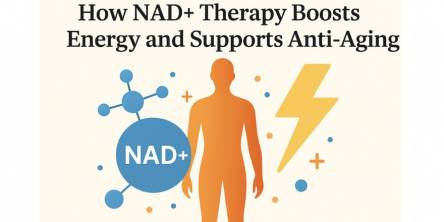What Happens In Drug Rehab? A Comprehensive Guide To The Recovery Process

If you're considering drug rehab for yourself or a loved one, it's normal to feel uncertain about what to expect. Drug rehabilitation is a structured process designed to help individuals overcome addiction and reclaim their lives.
Luckily, this post (and its points) will guide you through the different stages of the recovery process, highlighting what happens in drug rehab and how it can lead to lasting sobriety. Read on to learn more.
Why Rehab Is Important
Addiction is a chronic disease that affects both the brain and behavior. When you’re struggling with addiction, it’s challenging to break free without professional help. Drug rehab provides a supportive environment where you can focus on recovery without distractions.
Addiction Assessment And Intake
Your journey in rehab begins with an assessment. This step involves a thorough evaluation of your physical and mental health, addiction history, and any co-occurring disorders. The goal is to create a personalized treatment plan tailored to your specific needs.
Patient Detoxification
Detoxification, or detox, is often the first step in the rehab process. Detox involves clearing the drugs from your system and managing withdrawal symptoms. It’s crucial to undergo detox in a supervised setting, as withdrawal can be physically and mentally challenging.
Don't worry, during detox, medical professionals monitor your vital signs and provide medications to ease withdrawal symptoms. Symptoms can vary depending on the substance and the severity of addiction. Common symptoms include anxiety, nausea, sweating, and insomnia.
Aside from medical support being present, you'll receive emotional support to help you cope with the discomfort of withdrawal.
Inpatient Rehab Care
Inpatient rehab, also known as residential treatment, involves staying at a rehab facility for an extended period. This intensive program provides round-the-clock support and a structured environment conducive to recovery.
There are many types of therapies employed for inpatient care recipients. They include:
Structured Daily Schedule
Inpatient rehab care providers such as westcoastrecoverycenters.com. Your day will be filled with therapy sessions, group activities, and educational workshops. A structured routine helps you develop healthy habits and reduces the risk of relapse.
Individual Therapy
One-on-one sessions with a therapist allow you to explore the underlying causes of your addiction and develop coping strategies.
Group Therapy
Group sessions provide a sense of community and support. Sharing your experiences with others who understand your struggles can be incredibly healing.
Family Therapy
Addiction affects the entire family. Family therapy helps repair relationships and educates family members on how to support your recovery.
Outpatient Rehab Care
Outpatient rehab is a flexible option that allows you to receive treatment while living at home. It’s suitable for individuals with milder addictions or those who have completed inpatient treatment and need ongoing support.
Regular Therapy Sessions
You’ll attend scheduled therapy sessions, usually several times a week. These sessions can include individual, group, and family therapy.
Support Groups
Outpatient programs often incorporate multi-step meetings or other support groups to help you stay connected to a sober and supportive community.
Continued Medical Care
You may continue to receive medications to manage cravings and support your recovery.
Different Therapy Methods/Approaches For Drug Rehab Patients
Rehab programs use various therapeutic approaches to address addiction. These evidence-based treatments are designed to help you understand your addiction and develop the skills needed for long-term sobriety.
For starters, Cognitive Behavioral Therapy (CBT) or CBT helps you identify and change negative thought patterns and behaviors that contribute to addiction.
Next, Dialectical Behavior Therapy (DBT) or DBT focuses on teaching you how to manage stress, regulate emotions, and improve relationships.
On the other hand, motivational Interviewing is an approach that helps you find the motivation to change by exploring your ambivalence about recovery.
And lastly, holistic therapies, such as yoga, meditation, art therapy, and equine therapy, are designed to promote overall well-being.
Various Aftercare And Relapse Prevention Options
Recovery doesn’t end when you leave rehab. Aftercare is a critical component of the recovery process, providing ongoing support to help you maintain your sobriety.
- Sober living homes offer a transitional living environment where you can practice sobriety in a supportive setting.
- Outpatient counseling as a form of continuing therapy helps you stay accountable and address any challenges that arise in your daily life.
- Regularly attending support group meetings provides ongoing peer support.
- You’ll work with your therapist to develop a relapse prevention plan, identifying triggers and strategies to avoid relapse.
How To Deal With Co-Occurring Illnesses
Many individuals in rehab also struggle with co-occurring mental health disorders, such as depression, anxiety, or PTSD. Addressing these conditions is crucial for a successful recovery.
The following are said to be the industry's accepted and widely practiced methods in handling co-occurring illnesses:
- Integrated Treatment: Integrated treatment addresses both addiction and mental health disorders simultaneously. This approach ensures you receive comprehensive care for all aspects of your health.
- Medication Management: Some individuals may benefit from medications to manage symptoms of mental health disorders. Your treatment team will work with you to find the right medications and dosages.
- Ongoing Therapy: Continuing therapy for co-occurring disorders is essential. Regular sessions with a mental health professional help you manage symptoms and prevent relapse.
How Do Support Systems Help Drug Rehab Patients
A strong support system is crucial for long-term recovery. Surrounding yourself with supportive friends, family, and peers can make a significant difference in your journey.
To begin, educating your family about addiction and recovery helps them provide the support you need. Next, building connections with others in recovery can provide motivation and encouragement. Finally, ongoing therapy and counseling help you navigate challenges and stay focused on your recovery goals.
Different Ways Recovering Drug Rehab Patients Can Embrace A New Lifestyle
Recovery is about more than just quitting drugs; it’s about creating a fulfilling, healthy life. Embracing new activities and interests can help you stay sober and enjoy your life to the fullest.
To start, developing healthy habits, such as regular exercise, balanced nutrition, and adequate sleep, supports your overall well-being. Also, finding new hobbies and interests can give you a sense of purpose and joy. And doing mindfulness practices like meditation and yoga can help you stay present and manage stress.
Having A Strong Foundation For A Newfound Life After Drug Rehab
A key aspect of recovery is building a strong foundation for your new life. This involves developing skills and strategies that will help you maintain your sobriety in the long run.
Fortunately, many rehab programs often include life skills training to help you manage daily responsibilities and challenges. This can include job training, financial management, and communication skills.
On your part, setting short-term and long-term goals gives you something to strive for and helps keep you motivated. Your goals should be realistic and achievable, providing a sense of accomplishment as you reach them.
And don't forget: establishing a daily routine can help you stay organized and focused. A structured schedule reduces idle time, which can be a trigger for relapse.
Reconnecting With Oneself
Addiction often causes you to lose touch with who you are. Recovery is an opportunity to reconnect with yourself and rediscover your interests, values, and passions.
- Do Self-Reflection: Spend time reflecting on your past and your journey to recovery. Understanding your experiences can help you gain insight into your addiction and your motivations for staying sober.
- Strive For Personal Growth: Embrace opportunities for personal growth and self-improvement. This can include pursuing education, developing new skills, or exploring creative outlets.
- Build Up Your Self-Esteem: Building self-esteem is crucial for recovery. Celebrate your achievements, no matter how small, and acknowledge the progress you’ve made.
Navigating Challenges Of The Drug Rehab Process
Recovery is not without its challenges. Learning how to navigate these challenges is essential for maintaining sobriety.
- Managing Triggers: Identifying and managing triggers is a crucial part of relapse prevention. Triggers can be people, places, or situations that remind you of your past substance use.
- Dealing with Cravings: Cravings are a natural part of recovery. Developing coping strategies, such as distraction techniques or talking to a support person, can help you manage them.
- Handling Stress: Stress is a common trigger for relapse. Learn healthy ways to manage stress, such as exercise, meditation, or talking to a therapist.
Celebrating Milestones In The Drug Rehab Journey
Celebrating milestones in your recovery journey can provide motivation and a sense of accomplishment.
Set sobriety anniversaries. Why? It's because marking the anniversaries of your sobriety is a powerful reminder of how far you’ve come.
Additionally, celebrate when you achieve your goals, whether they are related to your personal life, career, or recovery.
And lastly, regularly take time to acknowledge the progress you’ve made. Reflecting on your journey can reinforce your commitment to staying sober.
To Conclude
Entering drug rehab is a courageous decision that can lead to a healthier, more fulfilling life. The journey may be challenging, but with the right support and commitment, recovery is possible. Remember, you're not alone—help is available, and a brighter future awaits. Taking the first step towards rehab is the beginning of your journey to lasting sobriety.
Similar Articles
Winter is a season when the body needs extra nourishment, warmth, and immunity support. According to Ayurveda and modern nutrition science, dry fruits play a vital role in maintaining health during cold weather.
Most people think health problems start suddenly. One day you feel fine, the next day something is wrong. In reality, most health issues develop slowly .They grow quietly in the background while life keeps moving.
The start of a new year is a natural time to pause, reflect, and think about how you want to feel in the months ahead. For those over 60, a fresh start does not mean setting unrealistic resolutions or making drastic changes.
Picture this: You're parked at your workspace, battling to focus on what should be a straightforward five-minute task. That afternoon slump? It's demolishing you today.
Joint pain and arthritis are common health issues that tend to become more intense during the winter season
Discover the benefits, challenges, and future of locum medical jobs. Learn how locum recruitment agencies support flexible, diverse career opportunities for healthcare professionals seeking dynamic work environments.
Burnout in the healthcare environment is a significant and growing crisis.
NAD+ therapy restores cellular energy, enhances metabolism, and promotes anti-aging by supporting DNA repair and improved overall vitality.
Seasonal Affective Disorder (SAD) is a type of depression linked to seasonal changes, most commonly seen during the late fall and winter months when sunlight exposure decreases









